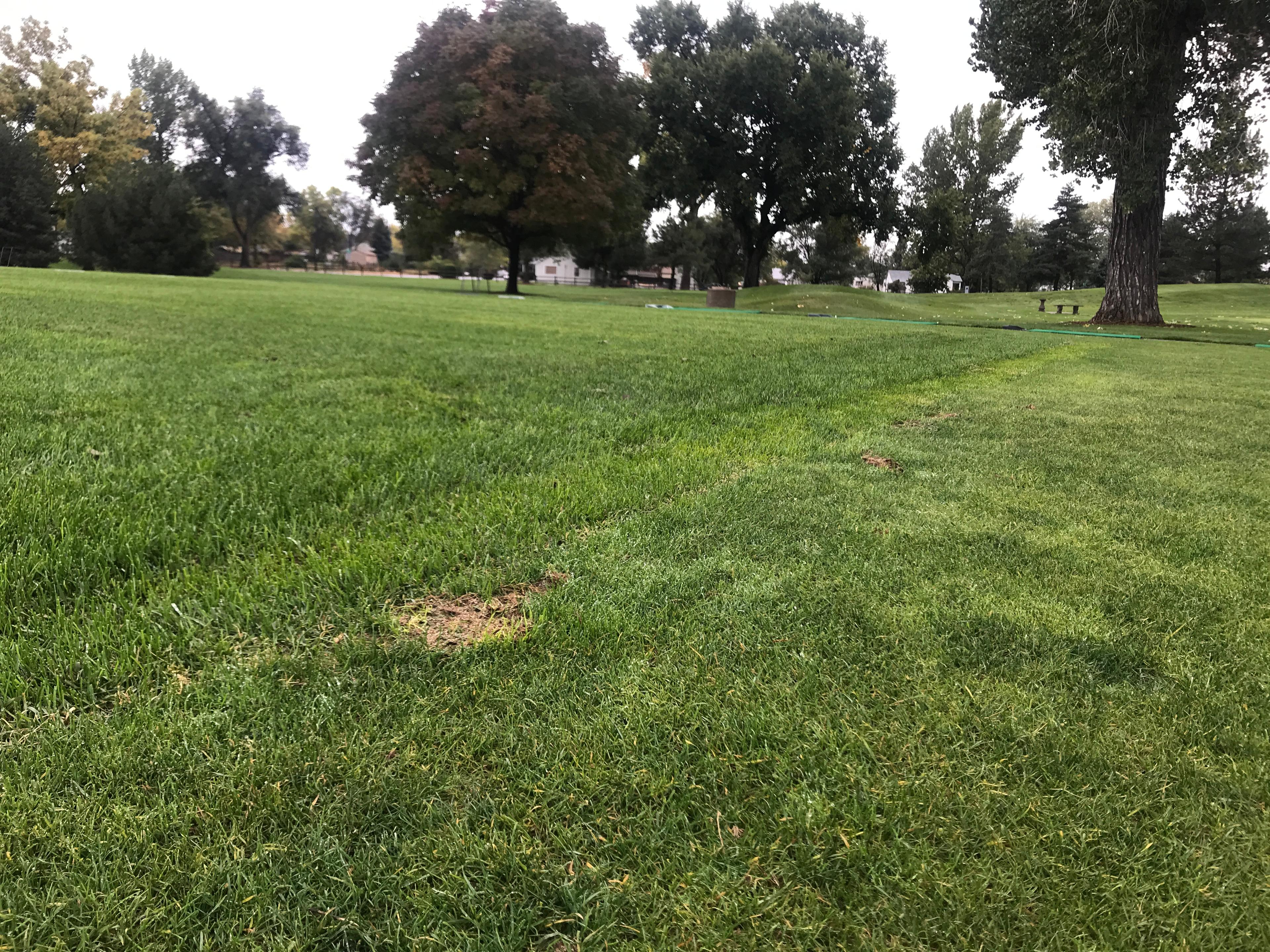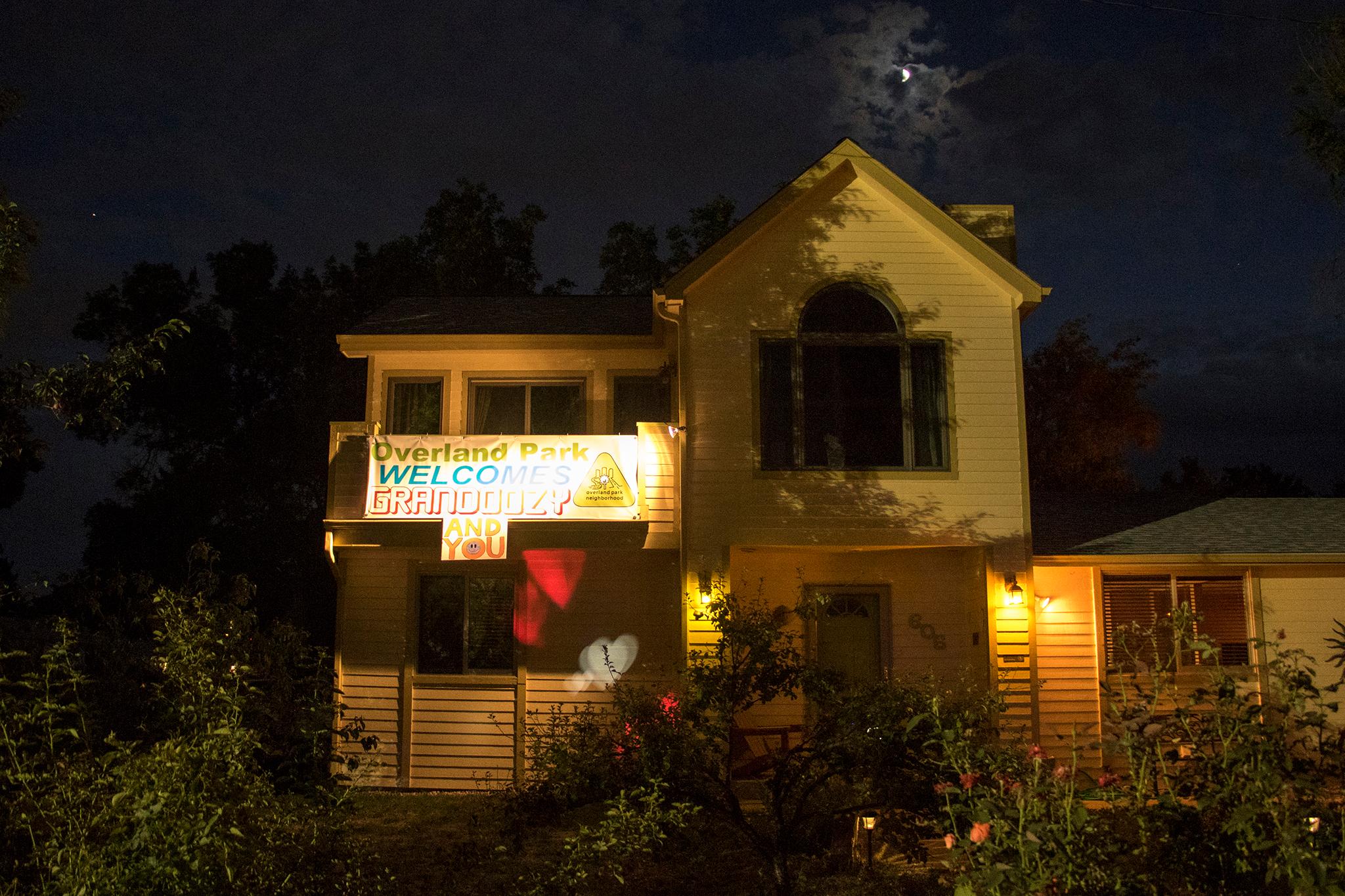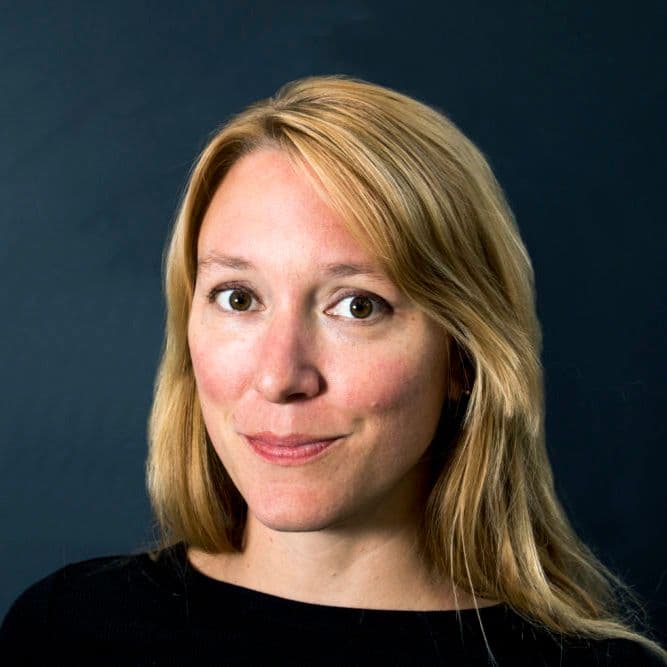It's a cold and unusually wet day for Denver, but anyone itching to hit some tiny white balls around Overland Park Golf Course can get back out there for the first time since August, two weeks before Grandoozy took over.
Not only that, but the course, the Overland Park neighborhood and the city have a few hundred thousand dollars headed their way.
In advance of the reopening on Monday, city officials had nothing but good things to say about Grandoozy and its aftermath.
"When Superfly came in and put on this amazing festival, we did not experience any more complaints or any more challenges with this event than with any other event," said Katy Strascina, executive director for Office of Special Events. "We had the infrastructure in the city to really work with an event of this size. Complaint-wise, far lower than any other festival. So for the city, it was definitely a thumbs-up, and we look forward to working with them in the future."
For those of you keeping a report card at home, that's a thumbs-up from the city of Denver and an A from Overland Park's most active defender. (No gold stars yet, but there's still time.)
Superfly had three weeks to clean up and get the golf course in at least as good condition as they found it. Check.
The production company that runs Grandoozy stuck to its contracted timeline — under penalty of $5,000 per day off-schedule. A third-party consultant did a walkthrough with city and Superfly staff before and after the festival to assess its condition pre-load-in and what repairs needed to be made when it was all over.
"The damage afterward was minimal compared to what we were potentially expecting, so that was a good thing," said Denver director of golf Scott Rethlake. "We did have some rain during load in that caused some challenges, but we overcame those, so I don't feel like there is anything we couldn’t overcome."
Overland Park Golf Course is about 135 acres, and about one acre of sod needed replacing. Most of that, Rethlake said, was on the driving range. That's where they put the main stage.

The festival was set up so that the most damage would be in areas like the driving range, where a flawless surface isn't as important as it is on tee boxes and greens. Rethlake said roads for load-in and loud-out did go over two tees, but they were replaced and are "looking, actually, really good." Trees were protected during load-in and load-out — a big concern of the neighbors and golfers — and mats and "high-tech portable roads" were put down to distribute the weight of vehicles coming across the course to prevent rutting.
Overall, Grandoozy only used about a third of the golf course, and Rethlake said they could handle more.
The city isn't getting as much money as expected, but it's satisfied.
As promised, $2 per ticket is going to build golf infrastructure and $1 per ticket is going to community improvements.
Fred Weiss, director of finance for Denver Parks & Recreation, said the city got $840,000 from Grandoozy. About $240,000 of that will go to reimbursements for things like the golf course being closed and expenses incurred by the city. A little more than $300,000 will go to golf, $135,000 to $140,000 will go to the neighborhood and about $135,000 to $140,000 will go to general parks.
Those totals ended up being in the middle of the road as far as what was projected. Early estimates had $180,000 to $420,000 going to golf infrastructure and $100,000 to $200,000 for community improvements. Weiss the city is happy with the amount.
"Given that this was year one, we really didn’t know," he said. "A lot of the revenue was based on ticket sales, so we really took a variety of guesses, and frankly the city’s pleased with the amount of money we received, and a lot of that will go to the golf course and neighborhood."
The official attendance count over three days of Grandoozy is 55,000 — and that's the number of times a person passed through the gates, not the total number of individuals. If you went to Grandoozy every day, you counted three times.
It sounds likely that Grandoozy will be back.
"We’re really happy, relieved and pleased that the course is looking great," said David Ehrlich, executive producer for Superfly. "... From our perspective, the festival went really well. I think we captured the vibe that we were trying to capture. It was very happy crowd, a very upbeat crowd, people shared a lot of special moments. We couldn’t have gotten there without the tremendous work of a ton of city employees and also the neighborhood. ... We’re going to continue over the next couple of months to work with the neighborhood."
There were very few complaints from the outlying neighborhood, and very few parking complaints, he said.

As for complaints about transit, Ehrlich said, it wasn't all that bad, and reports of conflict with RTD were misleading. Superfly and the agency came to a decision together not to add more service during the festival.
“We made it clear that it was going to be their decision and we would work with them to provide levels of service that we would both agree are appropriate,” former assistant general manager of communications Scott Reed told Denverite last month. “We sat down and looked at the carrying capacity of our regular level of service. Plus we agreed that we would add additional train cars. … It became pretty apparent based on their expectation of about 20,000 attendees a day that we did have sufficient capacity, especially for a first-year event."
The problem to tackle next year is education, Ehrlich said.
"Did it work perfectly? No. But we’re going to improve on it. And I think some of the things we need to do is talk about educating people about certain things. For example, we have to work on the fact that there’s going to be a time lag from when you leave the festival to when you get your Uber or your Lyft or RTD. I think if you tell people it’s going to be X amount of time, they incorporate it into their thinking and then they’re fine with it. If it’s unexpected, then sometimes that’s the problem."
One highlight, he added, was the bike valet. More than 1,300 people used it, the feedback was particularly positive, and it could be expanded next year.
"I think what we tried to undertake here, which is a significant festival with no car usage and no parking in an urban environment, is an ambitious undertaking but it’s an important one," he said.
Another lesson to carry into next year: local businesses are going to do well. Anecdotal feedback Ehlrich heard was "very positive," and Superfly will probably do more to "activate" the South Broadway area in future years.
But the decision about whether Grandoozy comes back is still a few months away. Over those next few months, Superfly and the city — including District 7 Councilman Jolon Clark — will continue to meeting with neighbors about the festival and what to do with the money they're getting. Preliminary conversations have raised the possibilities of spending on infrastructure, better lighting in areas like bike paths and an art project on the Evans Avenue bridge.
So things are looking good for Grandoozy's return. The neighborhood's No. 1 watchdog gave it an A, the city gave it a thumbs up and Superfly is feeling great. As for the director of golf: "I would definitely do it again."












